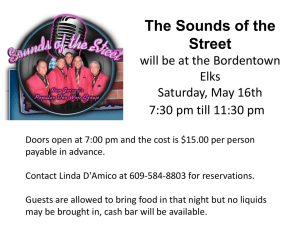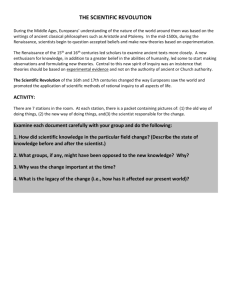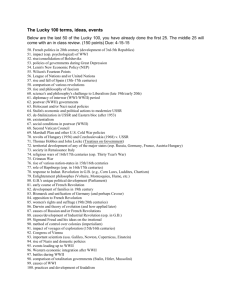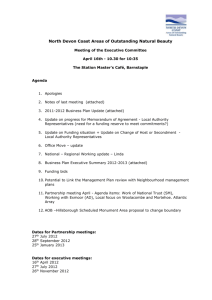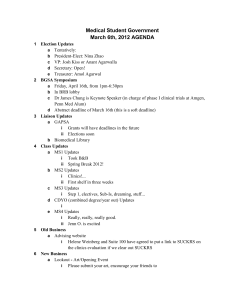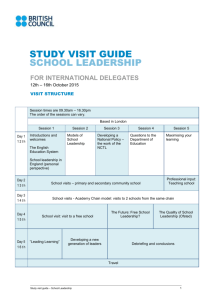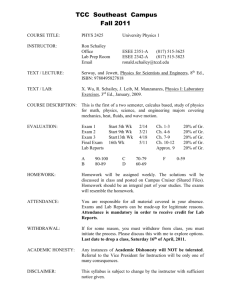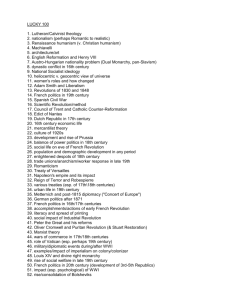The Middle Ages
advertisement
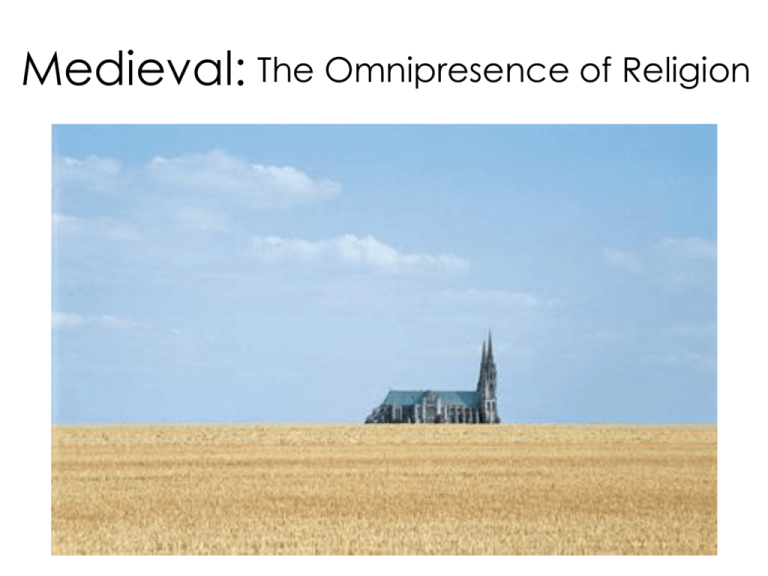
Medieval: The Omnipresence of Religion Old St. Peters once stood on the spot where the Basilica of Saint Peter stands today in Rome from the 4th to 16th centuries Basilica Ulpia served as inspiration building consisted of •five aisles •a wide central nave •two smaller aisles to each side—each divided by 21 marble columns (all spoils from earlier pagan buildings) apse nave double side aisle somewhat simplistic precursor to more ornate cathedrals that were to come Chartres Cathedral France, 1210-1225 Roman cubilculum—barrel vaulted ceiling Chartres Cathedral—groin vaulted ceiling Chartres Cathedral, France, 1210-1225, Suger of St Denis highest vaults in France at time of building Chartres Cathedral, South Portal, France 1210-1225 section of Chartres Cathedral, France, 1210-1225 cathedral used flying buttresses extensively—these supported the weight of the extremely high vaults flying buttress buttress cruciform—92 ft long nave & short transepts to the south and north nave apse ambulatory transcept east end is rounded (apse) with an ambulatory which has five semi-circular chapels radiating from it. transcept skeletal structure •used four rib vaults in a rectangular space, instead of six in a square pattern, as in earlier Gothic cathedrals pointed arch •skeletal system of supports, from the compound piers all the way up to the springing and transverse and diagonal ribs, allowed large spaces of the cathedral to be free for stained glass work, as well as a towering height compound piers pointed arch structure infill has three large rose windows: •west front—Last Judgment •north transept—Glorification of the Virgin •south transept—Glorification of Christ Rose Window communicating to an illiterate public the mystical quality of light and the presence of God •in some respects the most daring achievement of Gothic architecture •vaulting in the interior exceeds 150 ft •work interrupted in1284 by the collapse of the vaulting of the choir, a disaster that produced a temporary failure of nerve among the masons working in Gothic style Beauvais Ste. Chapelle, Paris, 1242-48 •built to house precious relics •in the heart of Paris Ste. Chapelle, Paris, 1242-48 Ste. Chapelle, Paris, 1242-48 fan vaulting Royal Chapel, Hampton Court Palace, England, 1535 Chapel of Henry VII at Westminster Abbey, London, 16th century Thorncrown Chapel, Fay Jones, Haddon Hall & Penshurst Place Derbyshire & Kent, England 14th - 16th centuries double court crenellated roof line oriel great hall Haddon Hall, Derbyshire, England, 14th - 16th centuries double court crenellated roof line oriel great hall Haddon Hall, Derbyshire, England, 14th - 16th centuries great hall Haddon Hall, Plan, 14th - 16th centuries dais trestle table trestle table Penshurst Place Penshurst Place, Great Hall, Kent, England, 14th - 16th centuries quatrefoil minstrel’s gallery screen brazier Penshurst Place, Great Hall, Kent, England 14th - 16th centuries Haddon Hall, Parlor, England 14th - 16th centuries Haddon Hall, Long Gallery, England 14th - 16th centuries •often located on upper floor •stretched across the entire frontage of the building •served several purposes: •used for entertaining guests •for taking exercise in the form of walking when the weather was inclement •displaying art collections Penshurst Place, Long Gallery, England 14th - 16th centuries prayer book •used by laymen for private devotion • containing prayers or meditations— appropriate to certain hours of the day, days of the week, months or seasons •shows artist’s depictions of day-today life heavy timber or half timber or “black & white” cruck Gothic Furniture England, 13th - 16th centuries Tester bed, France, 13th - 16th centuries Oak Sideboard, England 13th - 16th centuries Choirstall, England, 13th - 16th centuries Cress w/ linen-fold motif, England 13th - 16th centuries Joyned Chair, England, 13th 16th centuries “Throne” chair, England, 13th - 16th centuries

